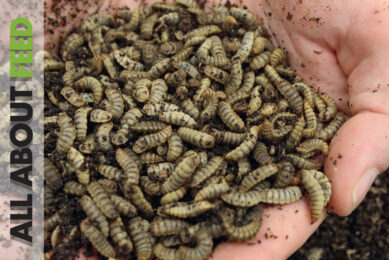No future for first generation biofuels

The European Commission recently proposed a policy shift that would allow food-based biofuels to contribute no more than half of the 10% target stipulated under the Renewable Energy Directive.
The remaining supply would be restricted to advanced biofuels, known as ‘second generation’ biofuels.
The commission is also proposed to increase the efficiency targets that biofuels must reach before they receive subsidies.
Biofuels must currently account for 35% less greenhouse gas (ghg) than the fuels they replace; the proposal will eventually extend the ghg savings threshold to 60%.
The new rules to account for indirect greenhouse gas emissions from biofuels are sending what EU Climate Commissioner Connie Hedegaard called a clear signal that first-generation biofuels were “not the future in Europe”.
Appearing in a joint press conference with Energy Commissioner Günther Oettinger, Hedegaard said that the compromise paper was not perfect but would ensure that future European biofuels were “more sustainable than they would have been without this proposal.”
“Climate-wise, some of the biofuels [receiving EU subsidies] are as bad as, or even worse than the fossil fuels that they replace,” she said.
The new proposal, which will amend both the Biofuels and Fuel Quality Directives, contains measures aimed at preventing the EU from providing incentives for the continued displacement of food crops for fuel. These include:
- A 5% cap on the amount of biofuels in the EU’s 2020 transport mix;
- An end to public subsidies for biofuels after 2020 unless they can demonstrate “substantial greenhouse gas savings”;
- A quadrupling of credits for second-generation biofuels, to provide production incentives;
- A 60% greenhouse-gas-saving threshold that will apply to new biofuels installations from 1 July 2014;
- A review of policy and scientific evidence on ILUC (indirect land use change), which will take place in 2017.
But the EU backtracked on its initial draft plans to introduce mandatory accounting for the indirect greenhouse gas emissions of specific feed-based biofuels under the Fuel Quality Directive.
As a result, first-generation biofuels may still be counted towards meeting the EU’s separate target for a 6% reduction in fuel greenhouse gas emissions, even though leaked EU data earlier this year corroborate Hedegaard’s assertion that some may indirectly emit more greenhouse gas than fossil fuels.
Next steps
- 1 July 2014: New biofuels installations must meet a 60% greenhouse gas saving threshold
- 1 Dec. 2017: Biofuels installations in operation before 1 July 2014 must meet a greenhouse gas saving threshold of 35%
- 31 Dec. 2017: The Commission will submit a review of policy and best scientific evidence on ILUC to the European Parliament and Council
- 1 Jan. 2018: Biofuels installations in operation before 1 July 2014 must meet a greenhouse gas saviong threshold of 50%
- 1 Jan. 2020: Deadline for 10% of EU’s transport fuels to be sourced from renewable energies.
- 2020: European Commission will not support further subsidies to biofuels unless they can demonstrate “substantial greenhouse gas savings”











